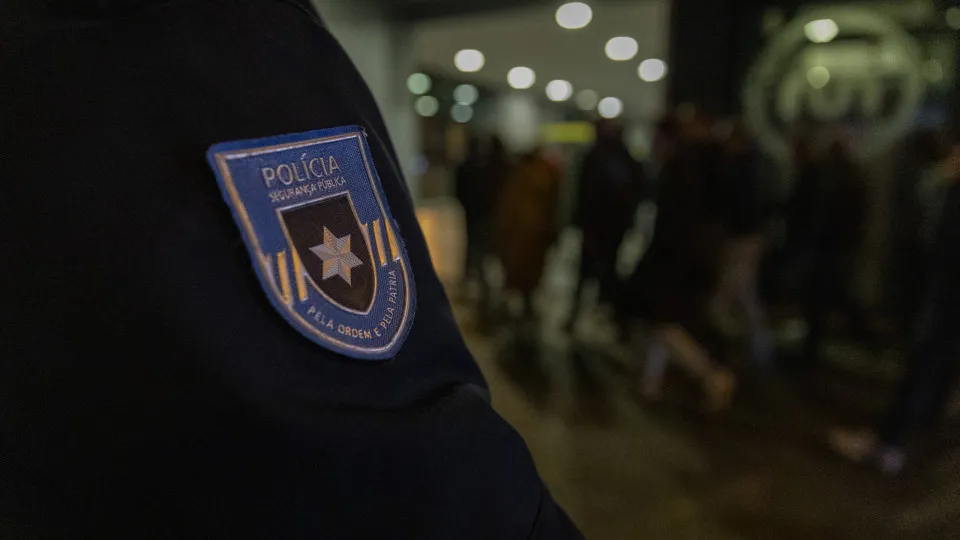The Workers’ Commission, comprising a president and four members, announced their “collective resignation” today, citing an “irreversible breakdown of trust in the institutional administration and current guardianship.” This follows the dismissal of Aida Tavares and the perceived lack of conditions to maintain open, independent, and democratic dialogue within the Workers’ Commission.
Aida Tavares, Director of Performing Arts at the CCB, stated on Wednesday to the newspaper Expresso that she was dismissed by the current CCB president, Nuno Vassallo e Silva, and member Madalena Reis, via phone call at 5:00 PM. This occurred when the Minister of Culture, Dalila Rodrigues, already knew she would not retain her position in the new government, which was announced the same day and whose ministers are set to be sworn in at 6:00 PM today.
The CCB, when contacted on Thursday by Lusa, did not clarify whether the artistic director was indeed dismissed.
In a statement released late Thursday afternoon by Dalila Rodrigues’s office, the then Minister of Culture denied any responsibility or interference in the CCB process.
The Workers’ Commission recalls that the CCB “has been subject to instability” since the end of last year, triggered by political intervention in the institution’s administration and internal management.
They point to two events: firstly, in November of last year, when then-Minister of Culture Dalila Rodrigues dismissed Francisca Carneiro Fernandes from her position as president of the CCB Foundation, to which she had been appointed a year earlier by the then-Culture Minister Pedro Adão e Silva.
And secondly, “now, with the complicity and passivity of the Board of Directors, with the removal of Artistic Director Aida Tavares.”
Referring to previously public statements, the Workers’ Commission highlights “the rigorous and strategic work of the two figures who were superiorly removed, which resulted in structural changes giving new momentum to the CCB cultural project, appreciating the value placed by the institution’s workers.”
The Workers’ Commission believes that “the agenda, from both the Board of Directors and the Ministry of Culture, is guided by ongoing conflicts between political agents embroiled in a power struggle, with total disregard for the team of CCB Foundation workers, the institution’s reputation, and its cultural mission.”
Following Aida Tavares’s statements to Expresso, on Thursday the CCB announced the opening of competitions for the Artistic Director of Performing Arts, currently held by Aida Tavares, and Curator of the MAC/CCB Architecture Center, a position held by Mariana Pestana.
“Following the same hiring model adopted for the Artistic Direction of MAC/CCB Museum of Contemporary Art, an ‘open call’ will be launched for the selection of a new Artistic Direction for Performing Arts. Simultaneously, a new external competition will be opened for the Curator position of the MAC/CCB Architecture Center,” the CCB stated in a communiqué released today.
These recruitments, “of international scope, reinforce the mission and ambition of the institution to stimulate innovation and the high quality of artistic programming, ensuring continuous dialogue between national and international creators.”
By the end of 2023, with the appointment of Francisca Carneiro Fernandes as president of the CCB’s Board of Directors, from which she was dismissed a year later, two organic units were established in the institution: Performing Arts and Thought, and MAC/CCB.
Aida Tavares was appointed as Artistic Director of the first unit, through direct hiring in December 2023, and Nuria Enguita was chosen by competition in March 2024 for the second unit. The museum opened in October 2023 without a director.
Aida Tavares assumed her role on December 15, 2023, at the invitation of Francisca Carneiro Fernandes, a hiring intended to accompany the institution’s new “strategic cycle.”

The cultural manager was replaced as president of CCB by historian Nuno Vasallo e Silva, a decision justified by the guardianship with the “need to print new direction to the foundation’s management,” “to ensure” that it provides “a national service, participating in a new cycle of Portuguese cultural life.”
Dalila Rodrigues was heard in parliament in December regarding the dismissal, accusing her predecessor, Pedro Adão e Silva, of conducting a “power grab” at the CCB, assuring that “the cronyism in that institution had ended.”
The then-minister’s statements led to requests from various parties to hear several individuals linked to the CCB in parliament, including Pedro Adão e Silva, Francisca Carneiro Fernandes, and Aida Tavares.
In February, Francisca Carneiro Fernandes denied in parliament that the appointment of programmer Aida Tavares as artistic director of the institution had been an imposition by Pedro Adão e Silva.
Days earlier, Francisca Carneiro Fernandes’s predecessor, Elísio Summavielle, had mentioned that Pedro Adão e Silva had suggested hiring Aida Tavares, a situation that culminated in a series of divergences with the previous government, leading him to decide to leave the CCB by the end of 2023, before the end of the last term.
Francisca Carneiro Fernandes justified the creation of the position by considering that “any organization programming performing arts must necessarily have a professional artistic direction,” saying that it was unnecessary to begin functions “to know that this position did not exist at CCB.”
Regarding the “case, or little case” of Aida Tavares, Elísio Summavielle refrained from further comments, referring to statements made by the board member Madalena Reis, the previous week in the same parliamentary committee.
Madalena Reis explained that she voted against hiring Aida Tavares, feeling that “there was no need for change.”
“There was a director of Performing Arts. She did not have exactly the same profile, but had very similar functions. With that director, programming was constructed and shared with the board of directors,” she said.
Pedro Adão e Silva, the last to be heard in the series of hearings, defended that the allegations of a “power grab” by his successor, Dalila Rodrigues, were unfounded.
Pedro Adão e Silva considered the minister’s declarations as “totally unfounded” which occurred “for two reasons”: “To justify a dismissal that lacked courage to assume” and attempt “to conceal the lost year for cultural policies that was her tenure.”
Pedro Adão e Silva described the minister’s statements as “a mechanism of projection: whoever says it is,” referring to individuals appointed by Dalila Rodrigues for various positions all having “connections to PSD.” “I made no appointments linked to PS,” he said.
Furthermore, these are “entirely people with the same profile as the minister,” who is a historian.




